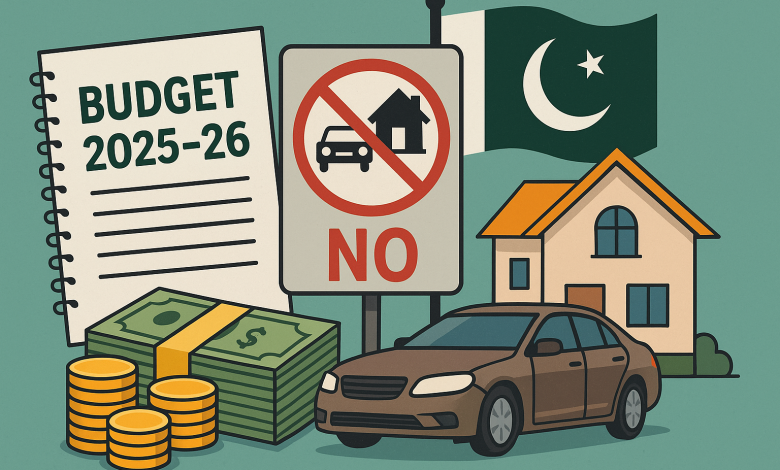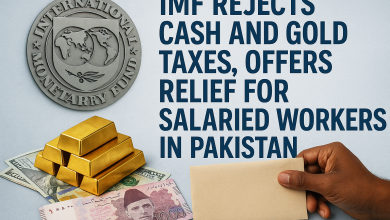Pakistan’s 2025–26 Budget: Government to Ban Non-Filers from Purchasing Property and Vehicles

As Pakistan prepares to unveil its federal budget for the fiscal year 2025–26, a significant policy shift is on the horizon: the government plans to prohibit tax non-filers from purchasing property and vehicles. This measure aims to broaden the tax base and fulfill commitments made to the International Monetary Fund (IMF) under the ongoing loan program.
Key Policy Changes
The proposed ban will prevent individuals who are not registered tax filers from acquiring immovable properties and motor vehicles. This initiative is part of a broader strategy to encourage tax compliance and increase revenue collection. By restricting major financial transactions for non-filers, the government intends to incentivize registration and regular tax filing.
Additionally, the government is considering the complete elimination of the “non-filer” category from the tax system. This move would further tighten the net around tax evaders and streamline the taxation framework.
MF’s Role and Economic Implications
The IMF has consistently emphasized the need for Pakistan to enhance its tax-to-GDP ratio, which remains among the lowest globally. In recent negotiations, the IMF has urged Pakistan to implement stringent measures to expand the tax base and improve compliance. The proposed ban on property and vehicle purchases by non-filers aligns with these recommendations.
By enforcing such measures, the government aims to boost revenue collection, reduce fiscal deficits, and promote economic stability. These steps are crucial for meeting the conditions set by the IMF and ensuring the continuation of financial support.
Implementation and Enforcement
The Federal Board of Revenue (FBR) will play a central role in implementing these measures. Plans include:
- Abolishing the Non-Filer Category: Removing this classification to eliminate loopholes that allow individuals to avoid taxation.
- Leveraging Third-Party Data: Utilizing information from banks, real estate transactions, and other sources to identify and monitor tax defaulters.
- Expanding the Compliance Risk Management System (CRMS): Extending this system to major cities and corporate tax units to enhance monitoring and enforcement.
These steps are designed to create a more robust and transparent tax system, ensuring that all eligible individuals contribute their fair share.
Impact on Stakeholders
For Non-Filers:
The proposed ban will significantly limit the financial activities of non-filers, compelling them to register and comply with tax obligations. Failure to do so will restrict their ability to invest in property and vehicles, which are often considered essential assets.
For the Real Estate and Automotive Sectors:
These industries may experience short-term disruptions as the pool of eligible buyers shrinks. However, in the long term, increased tax compliance could lead to a more stable and transparent market environment.
For the Government:
Enhanced revenue collection will provide the government with greater fiscal space to invest in public services and infrastructure, contributing to overall economic growth.
Challenges and Considerations
While the proposed measures are ambitious, their success hinges on effective implementation and public cooperation. Potential challenges include:
- Resistance from Stakeholders: Individuals and businesses accustomed to operating outside the formal tax system may resist these changes.
- Administrative Capacity: The FBR must ensure it has the resources and systems in place to enforce the new regulations effectively.
- Public Awareness: Educating the public about the importance of tax compliance and the benefits of the new measures will be crucial.
he government’s decision to bar non-filers from purchasing property and vehicles marks a significant step toward enhancing tax compliance and economic stability in Pakistan. By aligning with IMF recommendations and focusing on broadening the tax base, these measures aim to create a more equitable and transparent financial system. As the 2025–26 budget approaches, stakeholders across the country will be closely monitoring the implementation and impact of these policies.
